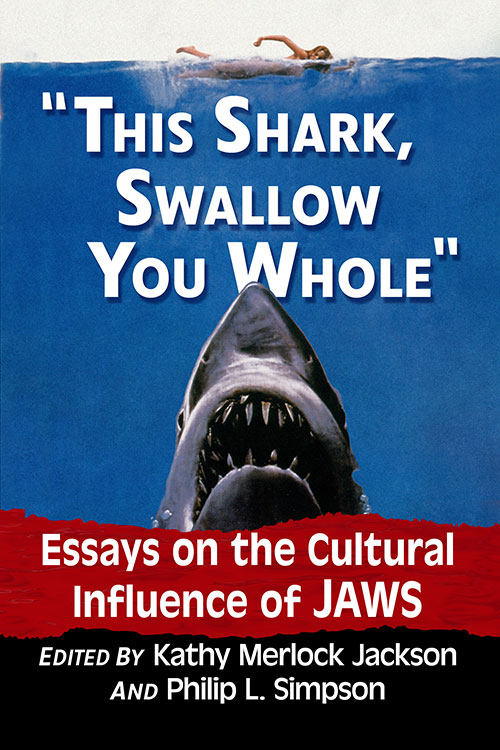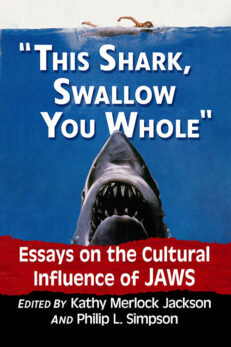“This shark, swallow you whole”
Essays on the Cultural Influence of Jaws
$55.00
In stock
About the Book
One of the most influential thrillers in media history, Jaws first surfaced as a best-selling novel by first-time novelist Peter Benchley in 1974, followed by the 1975 feature film directed by Steven Spielberg at the beginning of his storied career. Jaws is often considered the first “blockbuster,” and successive generations of filmmakers have cited it as formative in their own creative development.
For nearly 50 years, critics and scholars have studied how and why this seemingly straightforward thriller holds such mass appeal. This book of original essays assembles a range of critical thought on the impact and legacy of the film, employing new perspectives—historical, cinematic, literary, scientific and environmental—while building on the insights of previous writers. While varying in focus, the essays in this volume all explore why Jaws was so successful in its time and how it remains a prominent storytelling influence well into the 21st century.
About the Author(s)
Bibliographic Details
Edited by Kathy Merlock Jackson and Philip L. Simpson
Format: softcover (6 x 9)
Pages: 269
Bibliographic Info: notes, bibliographies, index
Copyright Date: 2023
pISBN: 978-1-4766-7745-3
eISBN: 978-1-4766-4758-6
Imprint: McFarland
Table of Contents
Introduction
Kathy Merlock Jackson and Philip L. Simpson 1
Reinterpreting Text, Narrative, and Characters
Jaws as Patriarchal—and Ecocidal—Myth
Jane Caputi 9
Jaws, Quint’s Tale, and the Scars of World War II
Kathy Merlock Jackson 18
Amity Means Friendship: Jaws and the Post-Vietnam Politics of Perception
Andrew Howe 31
Struggling Against the Tide: Narrative Structure and the Human Connection in Jaws
Melissa Ford Lucken 46
Reflecting on Science, Nature, and Cultural Change
You’re Gonna Need a Bigger Boom: Jaws, MythBusters, Science, and the Legacy of the Blockbuster
Michael J. Meindl 59
The Author and the Paratrooper: Speaking Up for Sharks, Fifty Years Apart
Emily Sullivan 74
Lessons from Jaws 1916–2020: What Have We Learned from Predators and Pandemics?
Amy J. Lantinga 86
“It’s a Carcharodon carcharias”: Jaws, the EcoGothic, and Climate Change
Carey Millsap-Spears and Michelle Zurawski 110
The Goofy Great White: Jaws and Our Love for an Apex Predator
Jay Alabaster 124
“Killing people whenever he felt like it”: The Predatory Rogue Shark as Forerunner of the American Cultural Obsession with Serial Killers
Philip L. Simpson and Andrew Lieb 139
Recreating the Film Industry
Jaws and the Racial Ubiquity of the Summer Blockbuster
Joshua Botvin 157
A Shark Eating Its Own Tail: Sequel, Cycle, and Remake in the Jaws Franchise
Matthew Bolton 176
You’ll Always Go in the Water Again: The Jaws Filone
Ralph Beliveau and Carl H. Sederholm 200
Summer Spielberg, Winter Spielberg: Generational Transitions from Jaws to the Age of Convergence
Gary R. Edgerton 227
Bibliography
Camille McCutcheon 245
About the Contributors 251
Index 255





